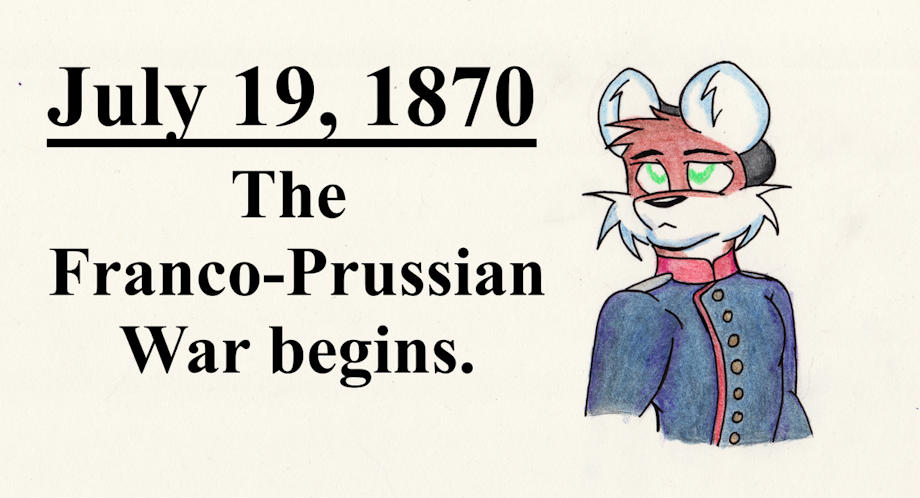On July 19, 1870, the Franco-Prussian war begins as the Second French Empire under Napoleon III goes to war with Prussia and allied German states. Prussia had previously formed an union with several northern German states with the North German Confederation; however, several southern German states remained separate. Prussian statesman and masterful politician Otto von Bismarck saw a war with France where France was the aggressor as being helpful and even necessary for the unification of the remaining German states. Bismarck also believed that France would not receive much if any assistance in such a war as the rest of Europe feared a shift in the balance of power should France emerge victorious but not if Germany did so. Meanwhile, France's leadership, including Emperor Napoleon III, had grown more concerned about growing Prussian influence in Europe and even threatened war following after the German Prince Leopold had been offered the Spanish throne, a situation which threatened France's position. Though Leopold turned down the throne, French demands continued, including a demand made to King Wilhelm I of Prussia to never allow a Hohenzollern (a German dynasty) candidacy to the Spanish throne. While Wilhelm tactfully refused to make such a commitment, he did sent a report about the meeting where the demand was made to Bismarck, who then edited the report to change the language to give the appearance that each side had insulted the other. France soon afterwards declared war against Germany and invaded German territory, including occupying Saarbrücken.
France had overestimated its position in the war. France had expected the southern German states to remain out of the war or join with the French; however, these German states did as Bismarck had hoped and joined with the North German Confederation, eventually forming the German Empire in January 1871. France had also hoped for Austrian support as Austria had previously fought against Prussia in 1866, but Austria elected to remain out of the war following the decisions of the southern German states. The French army was also outmatched by the German and Prussian forces and soon faced defeat after costly defeat. On September 2, 1870, Napoleon III was captured at the Battle of Sedan resulting in his abdication of the French throne, the end of the Second French Empire, and the establishment of the Third French Republic in Paris. While France continued to fight against the Germans and Prussians, a siege of Paris began on September 19. By January 28, 1871, French leadership saw no way to victory and reluctantly surrendered.
German/Prussian casualties during the war totaled 144,642, including 44,700 dead, 89,732 wounded, and 10,129 captured or missing. French casualties totaled 756,285, including 138,871 dead, 143,000 wounded, and 474,414 captured or interned. There were a further 250,000 civilian casualties. The war also saw the death of the Second French Empire, rise of Third French Republic, a revolution in Paris and the creation of the Paris Commune until it was put down on May 28, 1871, by the French military. Furthermore, Germany was finally unified as one nation and emerged from the war as a greater power in Europe with the German Empire lasting until the abdication of Kaiser Wilhelm II in 1918 at the end of World War I.
Keywords
male
1,262,335,
fox
261,213,
vulpine
38,356,
germany
396,
this day in history
248,
tdih
244,
france
216,
prussia
13,
bismarck
7,
july 19
1,
franco-prussian war
1
Details
Published:
6 years, 7 months ago
20 Jul 2019 03:30 CEST
Initial: 2defe65348cb572dec429e0dd532633d
Full Size: a20bbbca8c2445db381e729d91d53828
Large: d48385f2decba50c6f38a3589eda1f19
Small: 37ebdd182a6e275eb727f7d1d1773be9
Stats
27 views
5 favorites
1 comment
